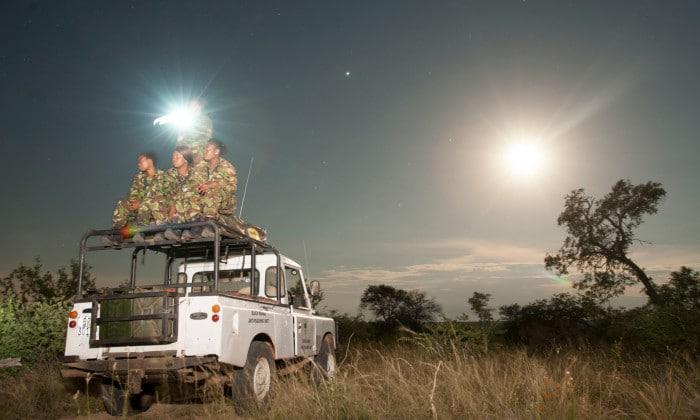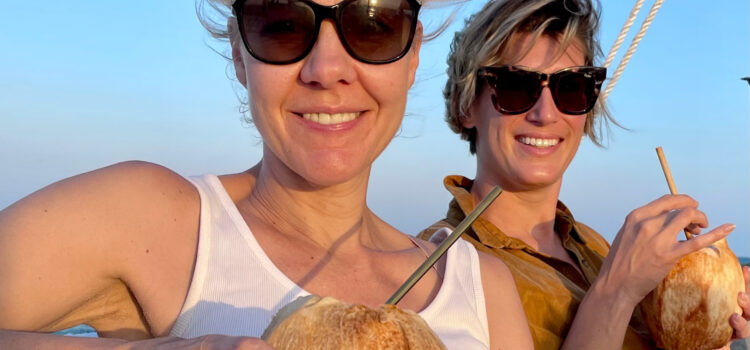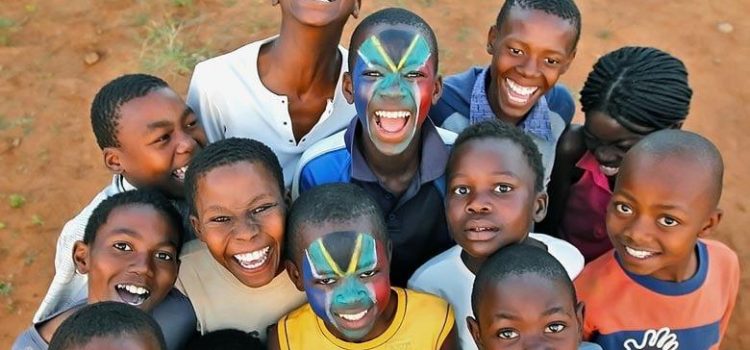When you think of anti-poaching units, the fairer sex does not immediately spring to mind. After all, is this not a job for men with coarse protective clothing, big black boots, and an even bigger gun? Apparently this notion is completely outdated as sisters are doing it for themselves in South Africa. Called The Black Mambas, this all-female anti-poaching unit has caught the world’s attention. Not only are they shining examples of what can be done to protect South Africa’s wild animals, but they are proving to be an inspiration to their communities.
Over the last few years, the Black Mamba Anti-Poaching Unit has patrolled one of South Africa’s northern private game reserves, the Balule Nature Reserve. This reserve borders the famous Kruger National Park with its resident rhinoceros that in recent years have been hit by poachers. The nature reserve also borders the surrounding areas where hundreds of thousands of desperately poor people live. When the poaching crisis started in 2007, just 13 rhino’s were killed in South Africa. Today, one rhino is killed every seven hours in this country.

Set up in 2013 to help protect the private Balule wildlife reserve, the Black Mamba team was hand selected from their local communities. They form part of a bigger team consisting of 29 armed guards, as well as an intelligence team that tries to stop the poachers before they can harm an animal. The Black Mambas patrol the reserve for 21 days at a time, walking as much as 20km per day to seek out poachers and check fences, camps, trails, and snares. The brainchild of Craig Spencer, head warden and ecologist at Balule Nature Reserve, the Mambas are the world’s first all-female unit, deployed to be the eyes and ears on the ground (not unlike a British Bobby), unarmed, but nonetheless a visible police presence.

Spencer looked for ways in which he could bridge the vast cultural and economic divide between the local communities and the wealthy reserves, which in his eyes only increased the risk of poaching. Rhino horn fetches hundreds of thousands of dollars and has a street value higher than cocaine. “The problem really is that there is this perception that has developed in the communities outside the park. They see a uniformed official and think we are the Sheriff of Nottingham, they see the poachers as Robin Hood.”
In order to bring communities into the fold, the Reserve decided to employ 26 unemployed local high-school graduates and put them through a rigorous combat training and tracking program. The women were given second-hand European military uniforms and deployed all over the 40,000 hectare reserve. And this approach certainly seems to be working. In the past 10 months, not one rhino has been lost in the reserve, while an adjacent reserve lost 23. The team has also been praised for reducing snare poaching by 76%.

Two such examples are Felicia Mogakane, 27, and Collet Ngobeni, 30, who were both unemployed and jumped at the opportunity of joining the all-female anti-poaching team. Both women saw this as their chance to get out of the vicious cycle of unemployment and to show how women can have just as much an impact as men when it comes to conservation in South Africa.
The two women recently accepted the Champions of the Earth award in New York, which is the United Nations most prestigious environmental accolade. Clad in black ankle boots and camouflage uniforms, they said that they wanted to be role models for their children and the women in their communities.
This comes as the United Nations has put together the most comprehensive 15-year global action plan to date, to try to combat climate change, empower women and end poverty. Three years of negotiations have led to the 193 member nations adopting 17 Sustainable Development Goals (SDGs).

“We’re called the Black Mambas because we can bite, and we can strike as fast as lightening,” chuckles Mogakane.
The Black Mamba story really showcases what can be done when a community gets involved and feel like they have a role in preserving and protecting their heritage and Africa’s wild animals for future generations.



